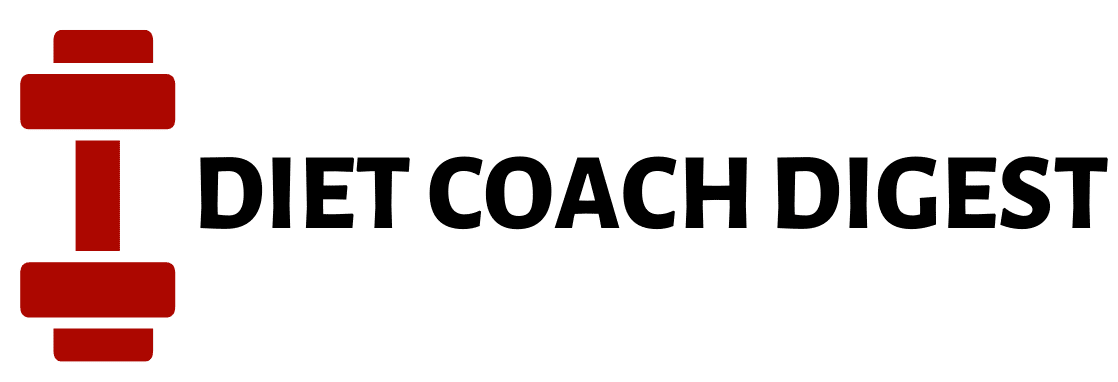The Ultimate Guide to N-Acetyl Cysteine (NAC) Benefits
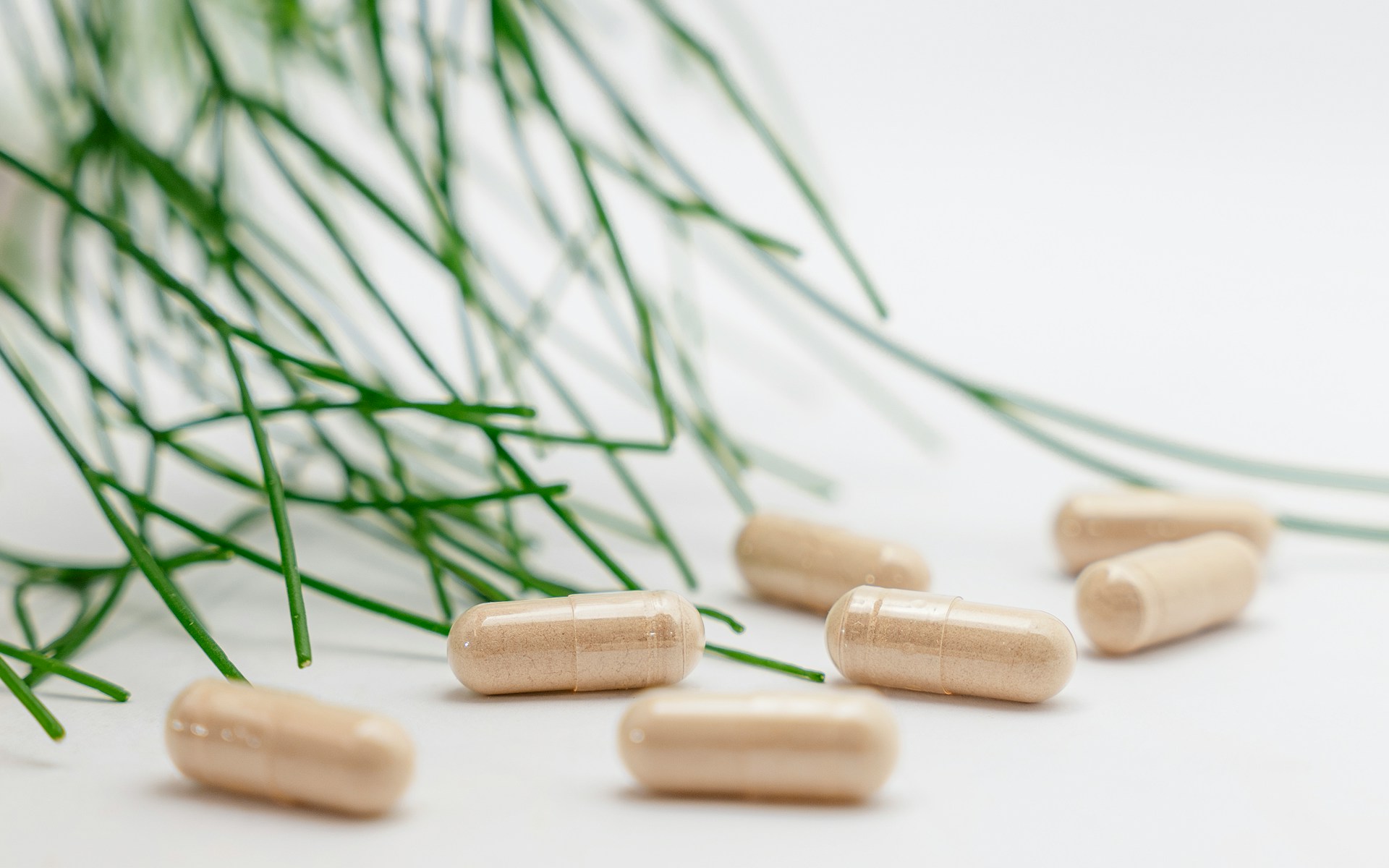
- Should You Train To Muscle Failure Every Set? What You Need To Know - March 4, 2025
- Nutrition in a Hurry: Top Post-Workout Snacks for Active People - February 20, 2025
- 15 Healthy Meal Prep Recipes: Your Weight Loss Made Easy - February 18, 2025
Welcome to “The Ultimate Guide to N-Acetyl Cysteine (NAC) Benefits.” In this guide, you’ll uncover how NAC, a powerful antioxidant, can positively impact your health. From boosting your immune system and enhancing your detoxification processes to promoting respiratory health and mental well-being, NAC offers a multitude of advantages. Dive in to learn how incorporating NAC into your wellness routine can be a game-changer for your overall health and vitality. Have you ever wondered about the magic behind some of the supplements that people rave about? One such powerful supplement is N-Acetyl Cysteine, commonly known as NAC. Whether you’re new to the health supplement world or a seasoned pro, understanding the benefits of NAC could truly transform your health journey. This guide is meant to provide you with a comprehensive look into NAC, its benefits, and how it might just be the supplement you didn’t know you needed.
What is N-Acetyl Cysteine (NAC)?
N-Acetyl Cysteine (NAC) is a supplement form of the amino acid cysteine. It’s a precursor to glutathione, one of the body’s most important antioxidants, which means it plays a crucial role in fighting oxidative stress. But what makes NAC stand out in the world of amino acids is its vast array of benefits, extending from cellular health to mental well-being.
How Does NAC Work?
Understanding how NAC works can illuminate why it’s so beneficial. Here are some basics:
Antioxidant Support
NAC helps replenish glutathione levels in your body. Glutathione is a master antioxidant, meaning it not only neutralizes free radicals but also supports other antioxidants like vitamins C and E.
Detoxification
NAC is often used in medical settings for acetaminophen (Tylenol) overdoses because of its ability to detoxify the liver. It helps rid the body of harmful substances, aiding the body’s natural detox mechanism.
Cellular Health
NAC influences the health of your cells, promoting proper cellular function and preventing cellular damage. It contributes to the synthesis of proteins, enzymes, and other essential molecules.
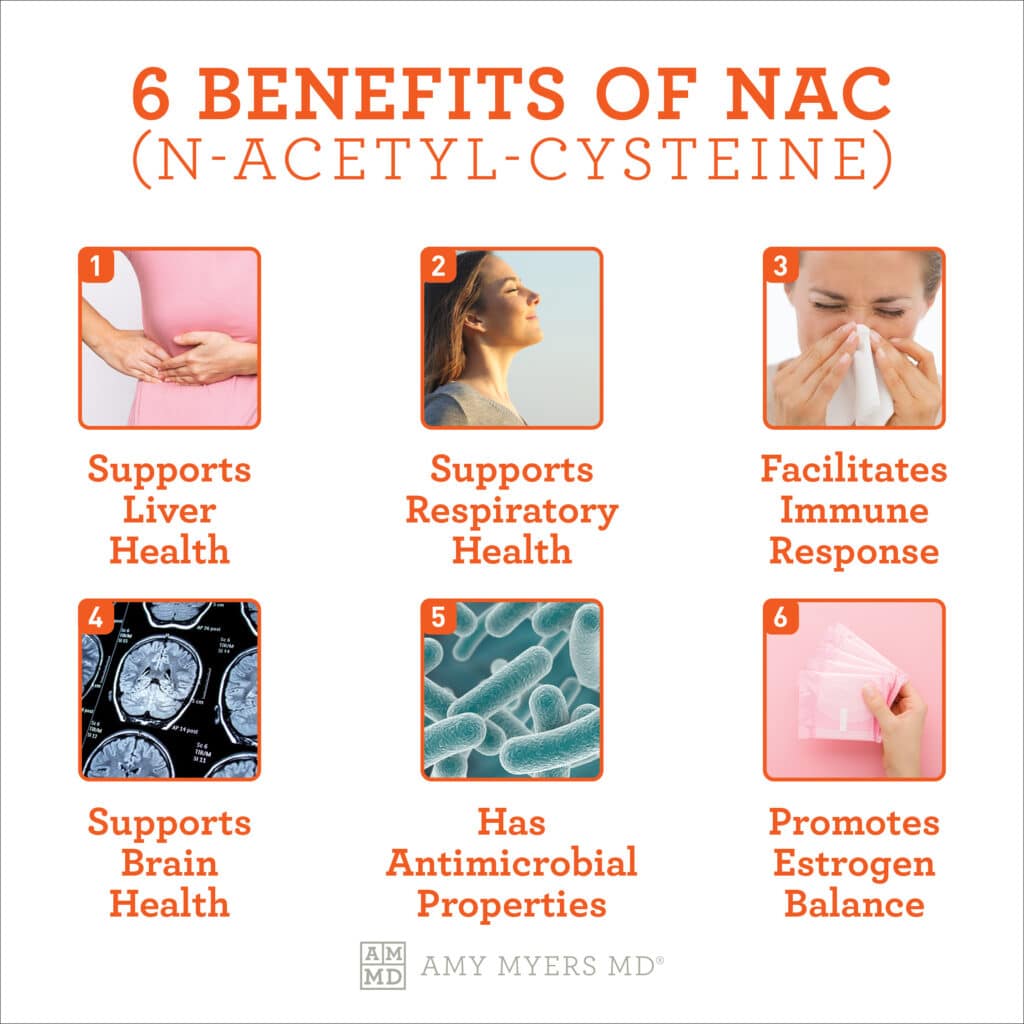
Top Benefits of N-Acetyl Cysteine (NAC)
Respiratory Health
NAC is often used as a mucolytic agent, meaning it helps break down mucus in the airways. This can be particularly beneficial for individuals with chronic respiratory conditions like Chronic Obstructive Pulmonary Disease (COPD) or bronchitis.
Mental Health
NAC has shown promise in treating mental health conditions such as depression, bipolar disorder, and obsessive-compulsive disorder (OCD). Its ability to balance glutamate and dopamine levels in the brain can regulate mood and cognitive functions.
Liver Health
As a liver detoxifier, NAC can be life-saving in cases of acute liver failure. It’s also beneficial for general liver health, helping to prevent and repair liver damage caused by toxins.
Immune Support
Since it boosts glutathione levels, NAC helps maintain a strong immune system. An enhanced immune response can defend against pathogens and reduce the risk of infection.
Fertility
NAC shows promise in improving fertility, particularly in individuals with certain health conditions like polycystic ovary syndrome (PCOS). Its antioxidant properties can enhance egg quality and sperm function.
Cardiovascular Health
NAC has been found to reduce homocysteine levels, a risk factor for heart disease. It also helps prevent oxidative stress in cardiovascular tissue, supporting overall heart health.
Potential Side Effects and Safety
Like any supplement, NAC comes with potential side effects and safety concerns. Here’s what you should know:
Common Side Effects
- Gastrointestinal issues: Nausea, vomiting, and diarrhea are among the most commonly reported side effects.
- Skin reactions: Some individuals might experience rashes or itching.
Serious Side Effects
While rare, there can be more serious reactions, including:
- Bronchospasm: Particularly in those with asthma
- Hypersensitivity reactions: Including swelling of the face and throat
Safety Tips
- Consult your healthcare provider: Especially if you are on medication or have a pre-existing condition.
- Start with a lower dose: To assess how your body reacts.
- Monitor for side effects: Keep an eye out for any adverse reactions and discontinue use if necessary.
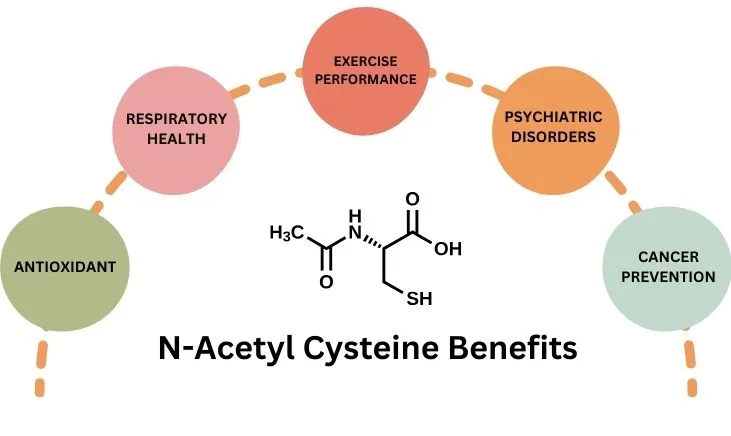
Dosage Information
Therapeutic Dosages
Depending on the condition you’re aiming to treat, the dosage can vary. Here’s a handy table to help you understand typical dosages:
| Condition | Typical Dosage |
|---|---|
| General Antioxidant Support | 600-1200 mg per day |
| Respiratory Conditions | 600-1800 mg per day |
| Mental Health Conditions | 2000-2400 mg per day |
| Liver Support | 600-1800 mg per day |
Administration Tips
- Take with food: This can help mitigate gastrointestinal discomfort.
- Stay hydrated: Drinking plenty of water can improve its mucolytic effects.
NAC in Medical Settings
Tylenol Overdose
NAC is a gold-standard treatment for acetaminophen (Tylenol) overdose. It prevents liver damage by replenishing glutathione levels quickly, thus neutralizing the harmful effects of acetaminophen.
Chronic Bronchitis and COPD
NAC’s ability to break down mucus makes it a valuable treatment for chronic bronchitis and COPD. Studies have shown that NAC can reduce the frequency and severity of exacerbations in COPD patients.
Psychiatric Applications
NAC has garnered attention for its role in psychiatric medicine, particularly for its potential to treat disorders involving glutamate dysregulation such as schizophrenia and OCD.
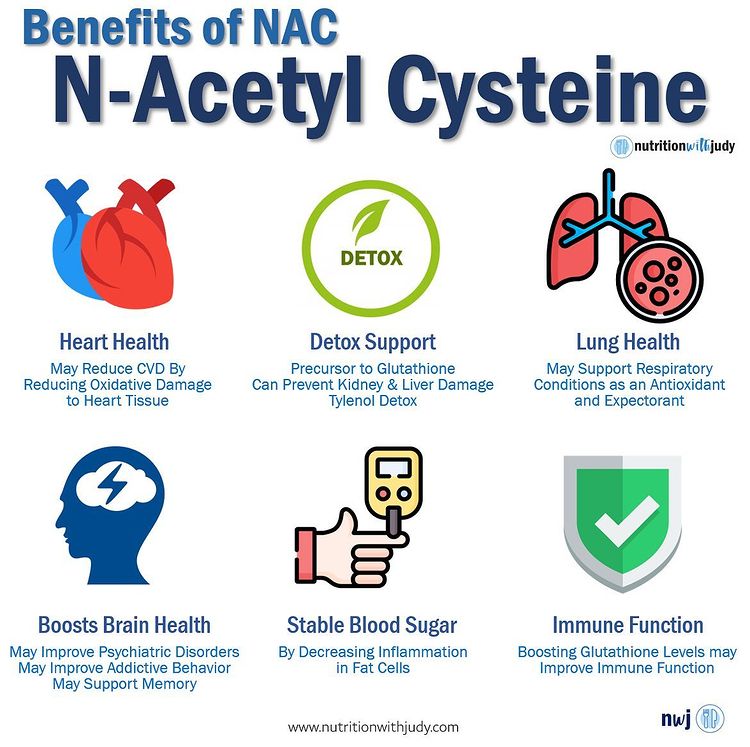
The Science Behind NAC
The benefits of NAC are widely supported by scientific research. Here’s a look at some key studies:
Antioxidant Properties
Research has shown that NAC supplementation can significantly increase the body’s glutathione levels, enhancing overall antioxidant capacity.
Liver Protection
A study published in the journal Hepatology demonstrated that NAC could protect against liver damage due to acetaminophen toxicity.
Mental Health
In a clinical trial, patients with bipolar disorder who were given NAC showed significant improvements in depressive symptoms compared to those who received a placebo.
Respiratory Health
A meta-analysis published in Respiratory Medicine confirmed that NAC is effective in reducing the frequency of exacerbations in COPD patients.
How to Choose a Quality NAC Supplement
With an overwhelming number of supplements available, choosing the right NAC product can be tricky. Here are some tips:
Check the Ingredients
Ensure that the product contains pure NAC without any unnecessary fillers or additives.
Look for Third-Party Testing
Supplements tested by third-party organizations tend to be more reliable. Look for seals from organizations like NSF International or USP.
Read Reviews
User reviews can provide practical insights into the product’s effectiveness and any potential side effects.
Assess the Dosage
Make sure the dosage fits your needs based on the conditions you aim to treat.
_%20Supporting%20Detoxification%20and%20Hormonal%20Balance.png)
Combining NAC with Other Supplements
Combining NAC with other supplements can sometimes enhance its benefits. Here are some combinations to consider:
With Glutathione
Since NAC is a precursor to glutathione, combining the two can amplify antioxidant effects.
With Vitamins C and E
These antioxidants work synergistically with NAC to neutralize free radicals more effectively.
With Selenium
Selenium helps in the production of glutathione peroxidase, an enzyme that works with glutathione to reduce oxidative stress.
| Supplement | Benefit |
|---|---|
| Glutathione | Enhanced antioxidant capacity |
| Vitamin C | Improved immune response, better recovery from oxidative stress |
| Vitamin E | Cardiovascular protection, enhanced skin health |
| Selenium | Optimal glutathione function, thyroid health |
Who Should Avoid NAC?
Although NAC is generally safe for most people, it may not be suitable for everyone. Here’s a list of those who should be cautious:
Pregnant or Breastfeeding Women
There isn’t enough reliable information about the safety of taking NAC for pregnant or breastfeeding women. Always consult your healthcare provider.
Individuals with Asthma
NAC can exacerbate bronchospasms in asthmatic patients.
Those on Blood Thinners
If you are taking blood-thinning medications, consult your healthcare provider before starting NAC, as it may increase the risk of bleeding.

Navigating Possible Drug Interactions
NAC can interact with certain medications, leading to either enhanced effects or side effects. Here are some common interactions:
Nitroglycerin
Combining NAC with nitroglycerin can cause severe headaches and a steep drop in blood pressure.
Activated Charcoal
Activated charcoal might reduce the effectiveness of NAC by preventing its absorption.
Chemotherapy Drugs
While some studies suggest that NAC might reduce the effectiveness of certain chemotherapy drugs, others indicate potential benefits. Always consult your healthcare provider.
Real-Life Success Stories
Hearing about others’ experiences can be incredibly motivating. Here are a couple of success stories:
Emily’s Respiratory Relief
Emily, a 45-year-old with chronic bronchitis, started taking NAC on her doctor’s advice. Within weeks, she noticed a significant reduction in mucus production and felt less breathless. This allowed her to engage more actively in her daily activities and improve her overall quality of life.
John’s Mental Health Journey
John, struggling with depression and OCD, heard about NAC from a friend. Skeptical at first, he started taking the supplement and was amazed by the results. Over time, he experienced fewer intrusive thoughts and felt more balanced emotionally.
How to Incorporate NAC into Your Routine
Now that you’re convinced of NAC’s benefits, here’s how you can seamlessly incorporate it into your daily life:
Morning or Evening?
There isn’t a consensus on the best time to take NAC, but many people prefer taking it in the morning to kick-start their day with an antioxidant boost.
Pair with Meals
Taking NAC with food can minimize potential gastrointestinal discomfort.
Consistency is Key
To experience the full range of benefits from NAC, make sure you’re taking it consistently. Set reminders or add it to your supplement organizer to stay on track.
Conclusion
N-Acetyl Cysteine (NAC) is more than just a supplement; it’s a powerhouse of benefits ranging from enhancing respiratory health to supporting mental well-being. Understanding its functions, uses, and potential side effects can help you make an informed decision and maximize its advantages. Always consult your healthcare provider before adding any new supplement to your routine, but don’t be shy about discussing NAC – it could be the key to unlocking a healthier, more vibrant you.
Feel free to share your experiences or questions about NAC in the comments below. We’re all on this health journey together, and your insights could help someone else make an informed choice. Cheers to better health!
Table of Contents
